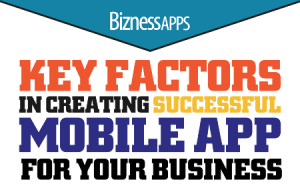— August 25, 2017

Fotoworkshop4You / Pixabay
Recently we’ve been working with some businesses that have been struggling with growth. Only it’s not the trouble you think it is — business is actually good. The trouble is whether they’re growing the “right way” for their business.
Many business owners think that they need to chase every revenue opportunity down. And while in start-up mode with little to no cash flow coming in, it’s easy to understand why that makes sense. But very soon that becomes a habit. And at some point, it can be a habit that actually keeps a business from growing in a way that sustains a business in a healthier way. And by healthy, we mean a way that enables acquiring that new revenue at a lower cost.
Let’s face it, why would you keep paying more (in money, time, and effort) to acquire new customers when you can acquire more new customers for less, faster, and easier? So instead of “chasing” revenue opportunities, why not be more strategic? Why not think about how new customers can come chase you?!
How do you do that?
Start with positioning your brand and committing all your resources to it
What the heck is a brand’s position? Why should I even care about a brand?
Your brand’s position is the mental real estate it occupies in your prospects’ and customers’ minds. It’s a reflection of your brand’s promise.
Here’s an example: let’s pretend you own a bicycle shop. There’s a mental map labeled “bicycle shops” that you and people in your community have. And while these shops are physically located all over the area, what really matters most is the mental map.
Just as a shop occupies a physical location (corner of 5th and Main), your brand occupies a location on this mental map. But which “corner” is yours? And how do you know what the corners are?
The corners or “grid coordinates” are determined by the attributes that are most important and relevant to your customers or prospects. These are the criteria by which they make their decision to buy from you, or someone else. The corner your brand owns is determined by the criteria that you meet better than any other brand.
Let’s say that Mike’s Bikes owns the corner of “off-the-road,” “adventure trips,” “endurance,” and “rugged.” Mike’s customers are mountain biking aficionados who love to go on off-the-road adventure trips all over the world and relish getting dirty and worn out.
Then there’s Sue’s Bikes. Sue’s shop owns the corner of “family,” “safety,” “training,” and “fun.” Sue’s customers are couples with young children who like to cycle together for recreation. They care about their kids learning how to ride safely and having fun together.
Dave’s Bikes is at the corner of “racing,” “innovation,” “precision,” and “expertise.” Dave’s customers are competitive bikers looking for the most innovative, precision-made products and expert advice to give them an edge as they go for the gold.
And lastly, there’s your shop. You own the corner of “errands,” “comfort,” “efficiency,” and “reliability.” Your customers are people who commute to work and/or do errands with their bicycles, so they need a reliable bike that’s comfortable and can adapt to multiple uses for carrying different kinds of objects (groceries, briefcases, laptops, etc.).
Each of these shops owns a distinctive location on that mental map. All the decisions each owner makes about what kind of products to sell, services to offer, people to hire, how to market themselves, what messages to use, what kind of displays to put in the stores, etc. should be driven by each brand’s position on that mental map, if they want to leverage their brand’s assets. That’s how you can drive customer acquisition costs down!
If Dave suddenly decided to start selling motor scooters, would his existing customers be excited and buy them from him? Or would they be turned off and wonder if they’re going to get the same attention from Dave’s shop as before? What would it take for Dave to be successful adding this product line? Would it help or harm his bicycle shop? Just because motor scooters are becoming more popular and he’s got an opportunity to take on a Vespa dealership — is that really the best way to leverage the assets he’s already built up in his business?
If Dave is really smart, he’s going to do a lot of listening — talking to his customers and finding out their level of interest in motor scooters and what they really think of them. We suspect he may discover that his current customer base looks forward to the quietness of cycling, the physical demands and benefits associated with training and the joy of winning because of their own leg and lung power. None of those criteria match up with Vespas, do they?
And given what you’ve read about the other bike shops in the area, if one of them were to take on a Vespa dealership, which one might be a good fit? Which one could stay true to its brand promise and position? Which one has customers who might be more interested in owning a Vespa?
All too often we find small business owners who add another product line to their arsenal thinking it will expand sales and grow their business. Instead, they discover (sometimes too late) that not only did the new line not add more sales, it drove regular sales away! When existing customers no longer feel that your business is “true” to its promise, they desert you and go find someone else who is.
Think back to when Coca-Cola introduced “New Coke.” Suddenly the “real thing” wasn’t the real thing any more, was it?
Your brand promise is at the heart of your business.
Keep your brand’s promise. Stay true to it. Fully commit to your brand’s position — it’s a litmus test for when opportunities come your way. If you say “yes” to the opportunity are you staying “on brand” or are you going “off brand”?
If it’s off-brand, think long and very, very hard before you go off course.
‘Cause out there be dragons ready to flame your business into charcoal!
Business & Finance Articles on Business 2 Community
(78)
Report Post







